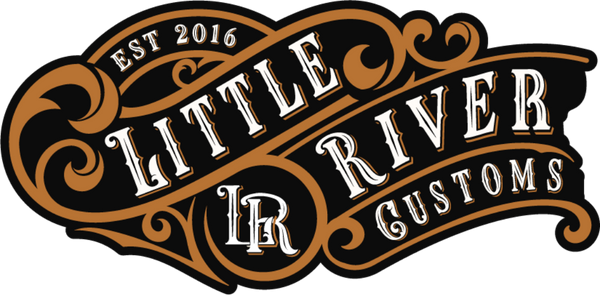The Art of Saying No: Protecting Your Sanity (and Your Brand)
Share
The Art of Saying No: Why Some Orders Just Aren’t Worth It
If you run a custom gear business, you’ve felt it. That little internal cringe when someone sends over a half-baked idea, a blurry screenshot, or a “can you just real quick” message at 9:42 PM.
They want a one-off item.
It’s not your style.
They don’t have the right file.
They don’t understand the time it takes.
And you’re left with two choices: bend your process—or hold your line.
Here’s the truth: learning when and how to say no is one of the most valuable skills you can develop as a maker, creator, or small business owner. It saves your time. It protects your quality. And it keeps the doors open for the right clients.
Know Your Limits (Before They’re Tested)
Saying yes to everything isn’t heroic—it’s a recipe for burnout. Whether you’re crafting leather patches, printing custom shirts, or building entire collections for departments or brands, your time and creative bandwidth are not unlimited.
Before you get caught in another “I’ll just knock this out real quick” trap, ask yourself:
- Does this project match my quality standards?
- Do I have the time to take this on without delaying other orders?
- Is this even the kind of work I want to be known for?
- Will I be proud to show off this finished product?
If the answer isn’t a confident yes, it’s probably a no (or at least a not right now).
Saying No Doesn’t Make You the Villain
In fact, saying yes to the wrong projects can hurt everyone—especially the customer. If the artwork isn’t usable, the idea doesn’t make sense, or the timeline is totally unrealistic, you’re not doing them a favor by “trying anyway.”
Instead, try one of these responses:
- “This type of design isn’t in our wheelhouse, but I can point you toward someone who does it well.”
- “This project would require a lot of changes to our normal process, and we want to make sure we’re delivering the best result. It might not be a good fit right now.”
- “I’d love to help in the future, but we’re currently focusing on our core product lines and can’t take on this type of request.”
Polite. Honest. Professional. No guilt required.
Refer with Confidence (Not Regret)
If you’ve built a strong network of trusted makers, artists, or shops, refer people out when it makes sense. You’re not losing a sale—you’re building reputation capital.
Referrals make you look confident, connected, and in control. And 9 times out of 10, people will respect the hell out of that.
Custom Doesn’t Mean “Anything Goes”
Running a custom business doesn’t mean you owe everyone a “yes.” It means you deliver incredible results when the right project hits your hands.
If it doesn’t fit your tools, timeline, or standards—pass.
You’re not in business to scramble. You’re in business to build.
Set the standard. Stick to it. And don’t be afraid to tell people when something isn’t a fit.
Not sure if your idea is a fit?
We get it—custom work comes with a lot of questions. If you're trying to figure out the best way forward, we're here to help. Even if we're not the right shop for the job, we’ll gladly point you toward someone who is. No pressure. Just honest guidance.
